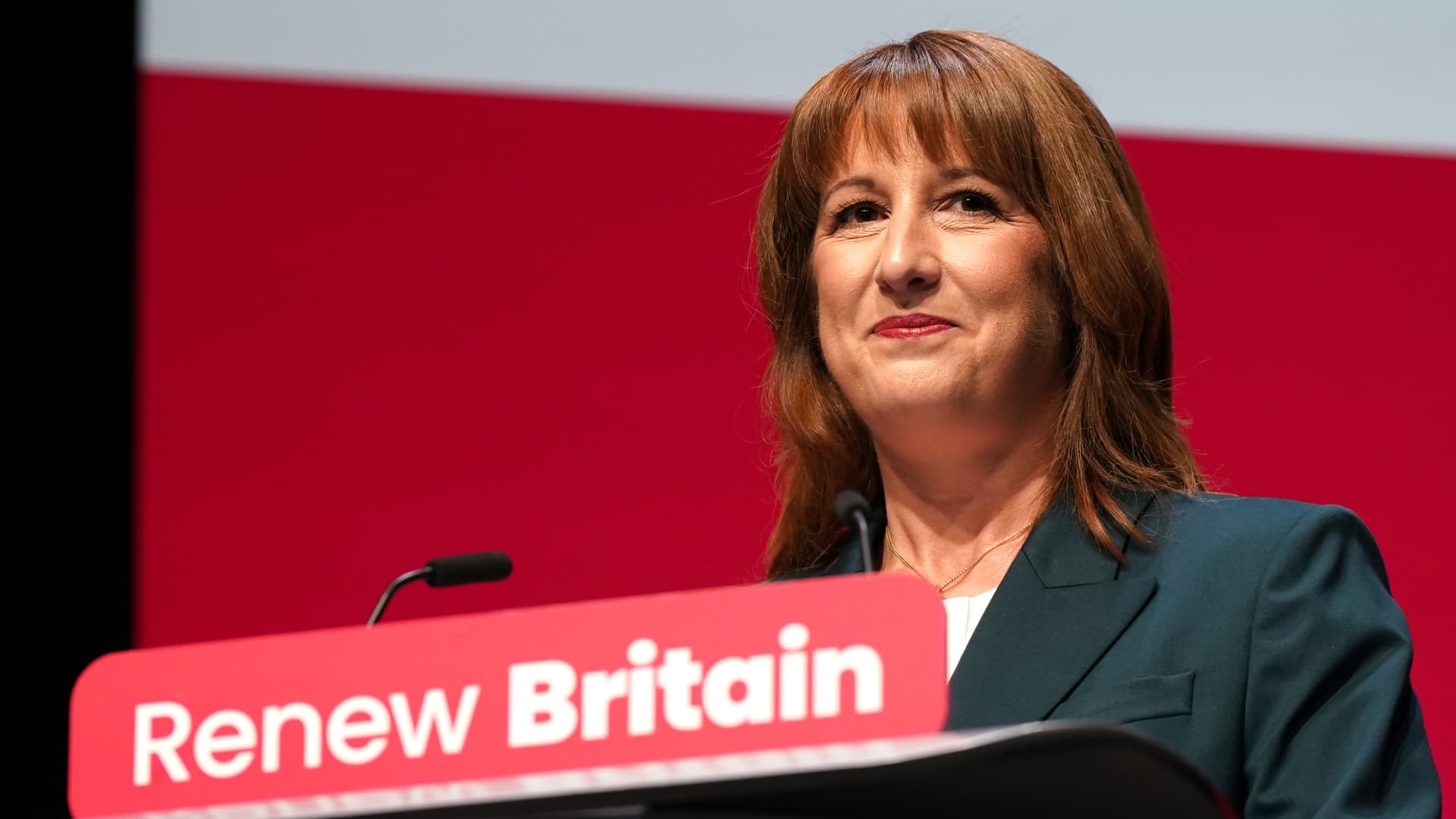Chancellor of the Exchequer Rachel Reeves speaks on stage during the Labour Party conference on Sept. 29, 2025, in Liverpool, England.
Ian Forsyth | Getty Images
U.K. Finance Minister Rachel Reeves has reiterated her commitment to the government’s self-imposed fiscal rules, but said it must be honest with the public about the challenges the country faces.
Speaking to CNBC’s Karen Tso on the sidelines of the IMF’s Annual Meeting in Washington, D.C., on Friday, Reeves cited the Russia-Ukraine conflict, tensions in the Middle East and the impact of global trade barriers as key challenges.
“The key thing for me is that as Chancellor, I’m determined … to be honest with people about the challenges that we face,” she said. “I will respond to those at the budget.”
On Nov. 26, Reeves will deliver her second Autumn Budget since becoming chancellor of the Exchequer. The policies announced in the upcoming budget come as the U.K. grapples with a faltering economy, inflated prices and elevated government borrowing costs.

Reeves would not be drawn on individual measures in the budget, such as the possibility of a bank tax, but said she wanted the U.K. to be competitive for businesses to “start up, to scale up and to grow.”
“We want Britain to be seen globally as the place to trade, the place to invest, the place to do business, and the place to bring global talent,” Reeves said.
She added that the U.K.’s financial regulators must take into account growth, not just risk.
Reeves has come under sustained pressure since last year’s Autumn Budget, when she announced strict rules that limited the government’s room for maneuver on spending and borrowing. Under her fiscal rules, day-to-day government spending must be funded by tax revenues and not borrowing, and Reeves has also pledged to ensure public debt is falling as a share of economic output by 2029-30.
Earlier this week, however, she hinted that in order to meet these conditions, she may have to break an earlier manifesto pledge not to raise taxes for working people. Her other options are breaking her own fiscal rules or finding more ways to slash the government’s outgoings.
All of those options would be unpopular with voters.
Markets on edge
Breaking her own self-imposed fiscal rules could spook financial markets. When questions arose earlier this year about Reeves’ future within the government, bond markets staged a drastic reaction that suggested investors were keen for her to remain in her post and stick to the rules.
With the U.K.’s 30-year government bond yields trading at well over 5%, the country’s government has the highest long-term borrowing costs of any G-7 nation.
Reeves declined to comment on bond moves, but said markets could see that the government was continuing to meet its fiscal rules, adding that she would continue on the path to fiscal consolidation.
“We know that the deficit has been running too high for the last few years, and as chancellor, I’m determined to reduce those costs of borrowing, bring down the debt, and ensure that we have a growing economy based on that platform of fiscal responsibility,” she added.
Previous efforts to cut the country’s welfare bill were thwarted when lawmakers within Reeves’ own party refused to back her plans, resulting in concessions that effectively wiped out £5 billion ($6.7 billion) of savings.
Last year’s tax raid on businesses also faced pushback, with many firms saying they were reluctant to hire staff as a result.
— CNBC’s Holly Ellyatt contributed to this report.





